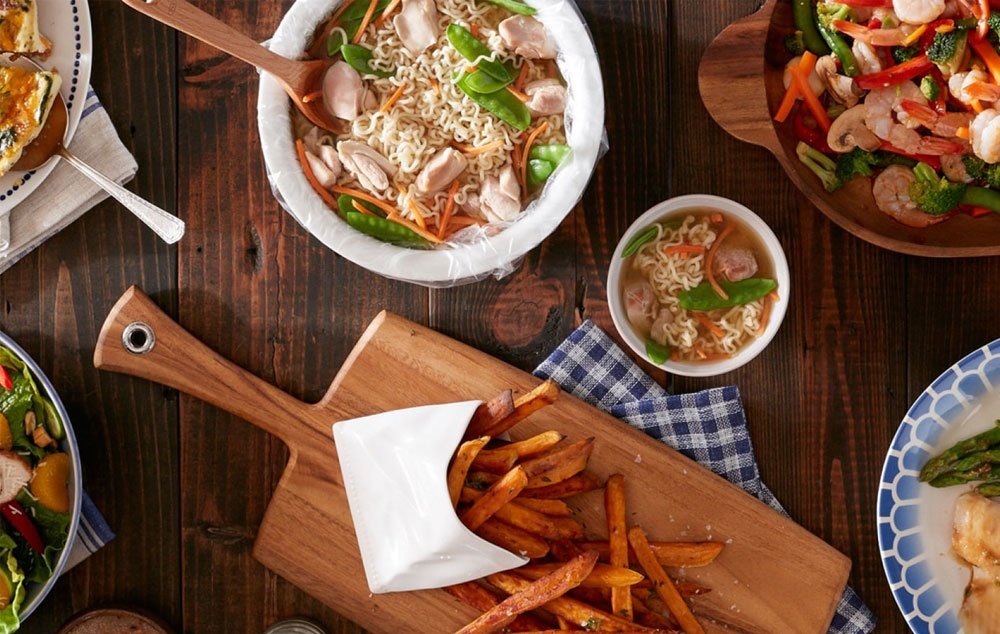India is abundant in local cuisines and traditional recipes that have been handed down in families from generation to generation. Every Diwali, Christmas, Eid etc. families feast together and celebrate their love for food by sharing and caring for each other. However, nowadays, the hustle and bustle of the city life takes away our enthusiasm and energy to spend any time in the kitchen. As a generation that needs everything at the touch of a button, a lot of young adults have become either too lazy or too busy to cook. But cooking is not just a great solution for a healthier lifestyle, it also gives us complete control over our diet. Just like the saying ‘You are what you eat’, our diet determines our body’s well-being and immunity from diseases. However, if you’ve never set foot in the kitchen in your life, cooking from scratch can seem intimidating. But the sooner you put on a chef’s hat, the faster you’ll become a good cook and learn to feed yourself without relying on anyone.
Whether you want to impress your mom or your better half with some home-cooked love or become more independent by learning how to cook, here are some cooking hacks to get you started!
1. If you’re cooking it for the first time, follow the recipe word for word:
Most basic recipes like Dal Chawal, are simple and require very few ingredients. However, it is essential to follow the ingredients and their quantities to the dot, or the dish could turn out disastrous!
2. Keep your kitchen stocked with vegetables and basic ingredients:
Once you start learning how to cook you will require different ingredients for every meal. Often, Indian spices like cloves, cardamom, chillies, asafoetida, turmeric, black pepper and salt are an essential part of most Indian recipes. Vegetables like potatoes, onions and garlic that have a longer shelf life will ensure that your kitchen is well-stocked.
3. Plan your meals ahead:
Whether you’re a student or a working professional with limited time to cook every day, planning your meals in advance is an amazing way to reduce your time in the kitchen without compromising on the quality of your meals. Make a table of your meals schedule with the seven days of the week in columns and the three meals of the day in rows. Use cooking tips like ready-made masalas, ginger garlic paste and store chopped up vegetables in the refrigerator that last longer.
4. Start with easy recipes:
As a first time cook, it is important to try out recipes designed especially for beginners. A great way to avoid feeling overwhelmed while learning how to cook is to start with easy recipes. So keep the pizzas and pastas for later when you’ve had some hands-on experience!
5. Add less first:
Confused how much salt in ‘salt to taste’ means? Follow the rule of thumb to always add less first and add more if required, after tasting. Eventually, you’ll get the hang of the amount of salt and spices you need while cooking.
6. Don’t leave the kitchen while cooking:
Every cooking method takes different amounts of time: boiling, roasting, frying, sautéing, etc. Cooking can be challenging for beginners as they try to figure out the time for each process, hence it can be dangerous to leave the kitchen for fear of burning your dish or worse starting a fire.
7. Use ingredients that last longer:
Another handy cooking tip is to use veggies and ingredients that have a longer shelf life. As a new cook, it might be difficult to know when a food item has gone bad and can be harmful for your health
8. Prepare ahead of cooking:
If you’re planning to cook dinner, make sure your kitchen is stocked with the necessary items by the previous day or in the morning. This will help you stick to the cooking time without making multiple rounds to the grocery store.
9. Exercise caution & safety while doing the simplest of tasks:
You should always keep in mind that the kitchen is almost like a laboratory and accidents can happen if one is careless. Be very careful while peeling or chopping your vegetables in order to not cut yourself with the knife. If you are uneasy with the knife then you can buy appliances for chopping and dicing functions.
Heat or fire is essential in cooking and requires the open flame of a gas oven, induction cooker, microwave etc. All these appliances have to be handled with utmost care in order to prevent fire/heat-related accidents. One must avoid wearing synthetic clothing as they are prone to catching fire easily.
10. Don’t fret if you fail:
Last but not the least, do not be discouraged if your first couple of attempts are not successful. After all, cooking is just another type of art form that needs practice and experience for you to get better.
